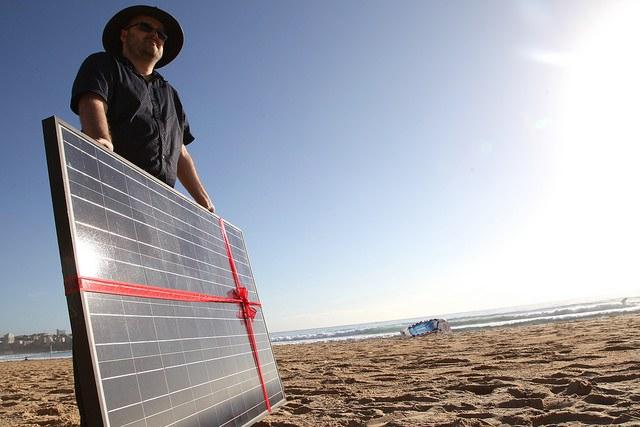
The theme of the international climate summit (COP22) this November in Morocco will center around “action and implementation,” says Dr. Hakima El Haite, Morocco's Minister-in-charge of the Environment. But how will countries rally to meet their climate goals coming out of Paris?
Transparency is vital for developing countries to enact policy that makes good on their commitments, or “nationally determined contributions,” to the Paris Climate Agreement. It is so important that governments and civil-society groups came together to launch a program called the Initiative for Climate Action Transparency (ICAT).
ICAT is a “a neutral, multi-donor trust fund designed to support developing countries in improving their capacity to measure, access, and report their climate actions, policies and their greenhouse gas emissions," Michael Jacobs, senior advisor for the Children’s Investment Fund Foundation, said at the climate talks in Bonn, Germany, on Wednesday.
There are four initial donors to ICAT: the German and Italian governments through their Ministries of Environment, the Children’s Investment Fund Foundation, and the ClimateWorks Foundation. It is held and managed by the U.N. Office for Project Services in Copenhagen, a the United Nations body that manages many international initiatives. The implementation of ICAT is being carried out by a group of organizations that includes World Resources Institute. Or, as Jacobs put it, “A variety of stakeholders are involved.”
An advisory committee for ICAT is made up of “some of the world’s leading experts from a variety of countries from around the world on measurement reporting, verification and assessment issues,” Jacobs explained. The advisory committee will be “very important in guiding the Initiative.”
“The aim of ICAT is to bring greater quality, transparency, trust and ambition to climate policies, and to facilitate more effective policy design and decision making,” Jacobs said in Bonn. “The initiative will provide tools for policy makers and other stakeholders to collect more robust and consistent data on emissions and adaptation efforts, and to help build institutional capacity in developing countries.”
Jacobs laid out three expected principal outputs of ICAT:
- A set of methodologies on how countries can better measure, assess and report on climate actions and policies. They were referred to as “global common goods” and will be made available internationally to help every nation provide more consistent data.
- Capacity building in the use of these tools will begin in 20 countries to help those countries improve their methodologies, reporting and verification systems.
- A platform for learning in which practitioners from various countries will be brought together to exchange experiences and lessons. ICAT seeks to be a clearinghouse for knowledge on climate action.
What ICAT has done so far is conduct a survey of over 350 stakeholders working in climate initiatives around the world, and it's starting to get feedback on how the needs and issues are “seen from the ground,” Jacobs said. Backers of the initiative have talked to 30 countries, which are among the candidates for the first 20 pilot countries, and have approved 17 of those. They are still talking to the others to decide which ones will be the other three countries.
Why Germany and Italy are participating in ICAT
“Transparency has always been the backbone of what we are doing here, both from an international and domestic perspective,” Nicole Wilke, chief climate negotiator for Germany and part of the German Ministry for the Environment, said on Wednesday. On the domestic side, “If you know what is going to happen in your country, then you will know how to design your policies,” Wilke declared. “You can only change things if you know what is happening."
That is what Germany learned from its own experiences, and its government decided to bring that experience “into the international sphere.” Germany will provide about $7.3 million for “combining the methodology work of transparency issues in the field of mitigation and sustainability through the actual in-country work,” Wilke said.
Italy is participating in ICAT “because we wish to be part of this common ground, this common capacity to fulfill the provision of the convention,” said Francesco La Camera, director general for sustainable development, energy and climate at the Italian Ministry of the Environment, Land and Sea.
La Camera mentioned the five-year review mechanism, which is part of the Paris Agreement and is the process for countries to strengthen their national climate action plans every five years. It gives the U.N. the capacity to “try and control the process somehow.” The five-year review mechanism consists of “target goals and you have to monitor, review and evaluate (MRV), so it’s the transparency process in itself,” he said.
In other words, Germany and Italy believe so strongly in the need for transparency within national climate plans that the two countries are ponying up money and time to create an initiative to facilitate it.
Image credit: Flickr/Kate Ausburn

Gina-Marie is a freelance writer and journalist armed with a degree in journalism, and a passion for social justice, including the environment and sustainability. She writes for various websites, and has made the 75+ Environmentalists to Follow list by Mashable.com.














